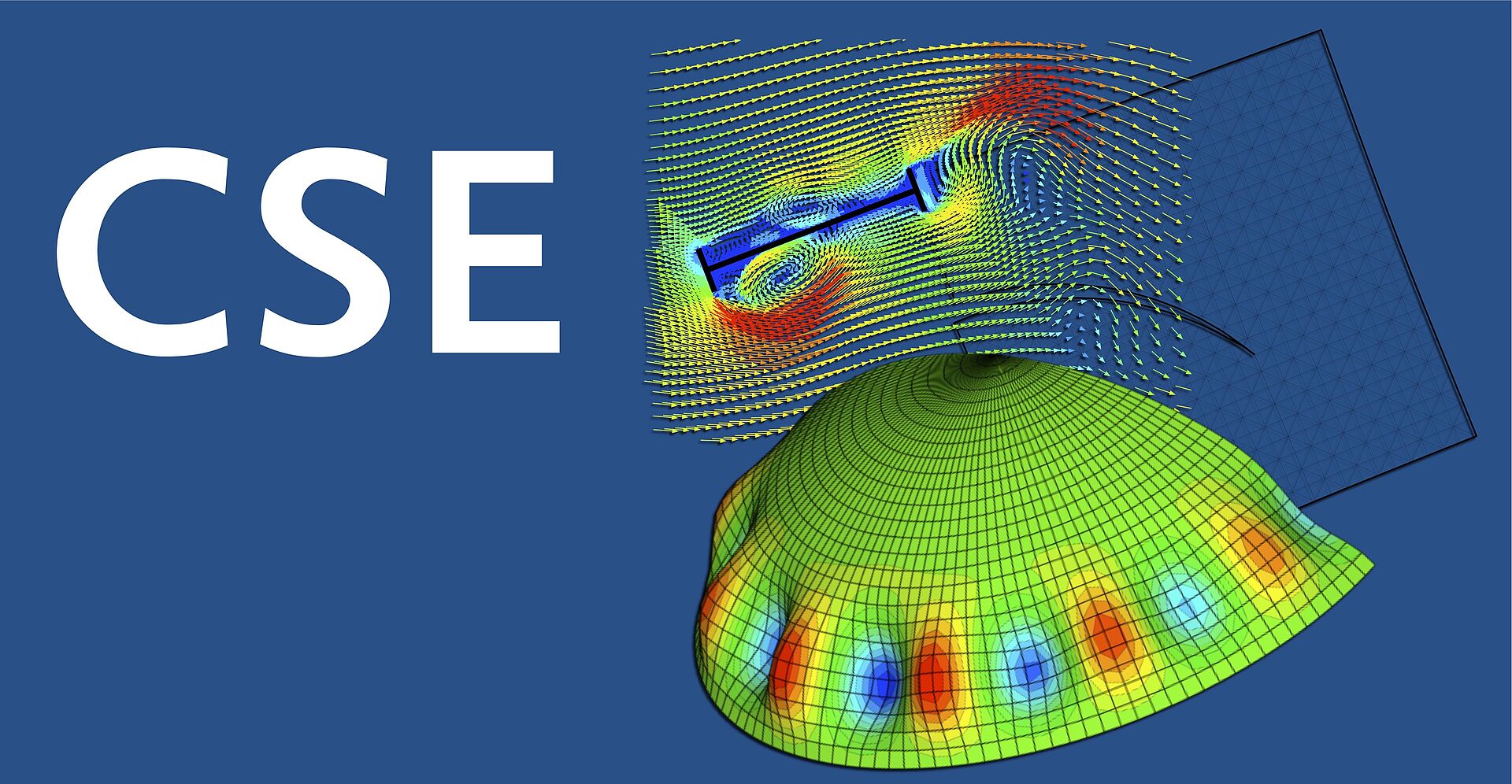Computational Sciences in Engineering (CSE) is an interdisciplinary, research-oriented and international master’s degree programme at TU Braunschweig.
CSE students will solve specific engineering problems regarding physical modelling, mathematical descriptions as well as numerical simulation. They perform and evaluate complex numerical analyses of engineering processes.
A special place to study: TU Braunschweig
Thanks to the large number of students, Braunschweig is a very lively and colourful city: You will find all sorts of clubs, ranging from mainstream to alternative to electro, from pubs to jazz clubs. The city is also known for its many parks and recreational spaces and is home to a number of top sports clubs. If you are looking for something different on the weekend: Berlin is only a 90-minute train ride away.
A wide range of options
CSE is an interdisciplinary programme which allows you to choose one of four directions of study: civil, electrical or mechanical engineering and mathematics. If you hold a bachelor in engineering, you may specialize in mathematics and vice versa, or you can continue with one the engineering specializations. The choice is yours!
For the so-called “In-Depth Courses” (35 credits) you may choose from a variety of classes offered at TU Braunschweig or other universities within and outside of Germany.
Beyond the lectures
Student life at TU Braunschweig offers a wide range of opportunities to get involved outside lecture halls. Learning new languages, joining one of the many student initiatives, such as the Lions Racing Team, taking or teaching sports classes or becoming a member of the student parliament are only a few ways to take part in the TUs student life.
Focus on application and research
CSE is a combination of engineering sciences, mathematics, and applied computer sciences. Students will develop mathematical models for physical processes related to various branches of engineering sciences. Simulation of engineering processes are becoming increasingly important and the design of digital twins is playing a significant role in key industries.
CSE students may apply their theoretical skills in industry as well as research through self-motivated internships, their specialisation project, and master’s thesis. Graduates will be able to apply this knowledge both in the development of new approaches as well as to improve existing technologies.
Technische Universität Braunschweig is Europe’s number 1 region for research with the highest density of scientists in Europe. Numerous internationally renowned research institutions and globally leading companies give students the opportunity to participate in current research projects during their studies and to carry out practical research themselves.
Information on the study programme
Content
CSE is a combination of engineering sciences, mathematics and applied computer sciences. Students will develop mathematical models for physical processes as can be found in various branches of engineering sciences.
Students will solve specific problems regarding physical modelling, mathematical descriptions as well as numerical simulation. They perform and evaluate complex numerical analyses of engineering processes.
Structure
The CSE master's programme is divided into:
Modules in the basic area of mathematics (MAF) – 20 credits
Compulsory elective area of the engineering profiles (ENG) – 15 credits
- Solid and Structural Mechanics
- Fluid Mechanics
- Information Technology
In-depth compulsory elective area of Computational Engineering and Methods (CEM) – 15 credits
Career Entry Qualifications (CEQ) – 10 credits
Elective area (ECL) – 15 credits
Student research project (PRO) – 15 credits
Master's thesis (MTH) – 30 credits
The programme is completed with 120 credits.
Download Study Plan
Areas of Specialisation
Possible Engineering Tracks:
Those who have acquired experience abroad and possess foreign language skills are in particularly high demand in the business world. Large companies operate globally, research projects are carried out in international teams, and expert literature is written in English. The CSE master’s programme offers you opportunities to gain international experience within the programme and abroad and let’s you professionalise your foreign language skills.
TU Braunschweig offers +500 exchange opportunities at universities in Europe (ERASMUS), the Americas and Asia.
Self-motivated internships in Germany or abroad are highly encouraged. The International House offers several scholarship programmes which students can apply for.
Studying abroad [in German only]
CSE is a combination of engineering sciences, mathematics and applied computer sciences. Students will develop mathematical models for physical processes as can be found in various branches of engineering sciences.
Our online self-assessment tool Fit4TU will help you to compare your expectations of CSE with the actual programme. The personalized feedback allows you to ascertain if your current skill set and knowledge are a good fit and if CSE is right for you.
CSE graduates will be able to apply their knowledge both in the development of new approaches as well as the improvement of existing technologies. They will have skills to plan, carry out and present the results of (sub-)projects in increasingly interdisciplinary project teams.
The CSE graduates are able to conduct independent research as part of their doctoral studies in civil, mechanical or electrical engineering, or in mathematics.
Graduates find themselves in management positions in international high-tech companies such as:
- Automotive
- Aerospace
- Chemical
- Software development
Admission requirements and application
For admission to the CSE Master's programme, the following academic qualification is required:
- Bachelor's degree (or equivalent) in
- Engineering Sciences
- Natural Sciences
- Mathematics
- Computer Science
- or a closely related degree programme
- Must show that they have at least good in-depth knowledge of the major basic subjects for the degree programme, such as mathematics, mechanical engineering and information processing. Generally attested by the degree certificate submitted, which lists the courses taken and marks awarded in a prior degree programme.
- Written motivation letter indicating and giving reasons for their strong interest in the individual fields of study, as well as specifying on what specific prior knowledge or interests their specialised qualification for the CSE degree programme is based. The statement should in particular also make reference to the multidisciplinary course content in Engineering Sciences, Mathematics and Scientific Computing.
- German Language Skills
- English Language Skills
Apply now
